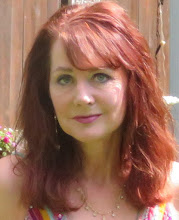I’ve heard that children born after 2000 are called “digital natives” because they’ve never known a world without the internet, mobile phones and MP3’s. The rest of us are “digital immigrants” and break down into three categories: avoiders, reluctant adopters and eager adopters.
But it’s not as simple as that. I’m an eager adopter in some areas and a reluctant adopter, or even an avoider, in others. I’m most comfortable with technologies that use skills I’m adept at. I love “surfing the net” because it’s really the same as doing research from books, which I’ve been doing most of my life, and I’ve used email, which is just another form of written communication, for years. But I’ve dragged my feet on Facebook and Twitter and texting on cell phones because it’s not like anything I’ve done before. I can’t get used to the idea of using abbreviations and slang in written communication, and I’m uncomfortable with the sort of exhibitionist, “look at me/listen to me” aspects of Facebook and Twitter.
But common wisdom is that if you’re in an occupation that requires self-promotion, like writing, you need to do these things. The idea of having a blog is also mentioned, along with blog tours and blog promo, and I thought, “I can do that!” So here I am.
I like the idea of a blog because it’s sort of like keeping a journal, indeed blogs are sometimes considered on-line journals. The term “blog” comes from a variation on “web log”. Someone suggested that web log should be pronounced “we-blog”, the “we” was dropped and a new term was born.
Most of my posts are going to be about things I’ve read or observed that made me think, rather than about writing. And yet, all writing springs from this mish-mash of thoughts and ideas and values that we develop over the course of our lives.
A lot of writing workshops talk about “voice”, meaning the unique way any one individual will put words together to tell a story. But I think equally important is “vision”. A writer’s vision provides the theme and the meaning behind their stories. Literary writers tend to have coldly realistic visions. They aim to show life in all its excruciating misery, angst and brutality. Genre writers tend to portray their worlds more in terms of how we desire life to be: good triumphs over evil, couples fall in love and live happily ever after, the murderer is caught or the bad guy/evil entity thwarted by the good guys in some fashion.
Genre writers and readers know, sometimes all too well, that the real world isn't like that, but when they read/write, they want to escape into a vision of a world where things work they way we think they should, rather than the way they often do.
As a reader, I’ve really struggled with this dichotomy. On one hand, if a plotline seems too neat or tidy, or the characters too much paragons that don’t exist in real life, I have trouble engaging with the story. It doesn’t seem real enough for me to care. But at the same time, I’m not always in the mood for the grim suffering that exists in real life.
As a result of my reading tastes, when I started writing novels, my early stories fell in the uneasy space between literary fiction values and genre ones. I was writing genre fiction, specifically romance, so I tried to follow the rules. But my personal vision kept slipping in. My characters were often too flawed, too “real” to appeal to genre readers, and I did the unforgivable (for a romance writer) and killed off one of my main characters. I did it in between books, but it didn’t matter. I found out that romance readers want the couple they read about to live happily ever after forever, not just be that way at the end of the book.
As I’ve gotten older, that “Pollyanna-ish” outlook as become easier for me. But that’s probably a story for another post. This has gotten long enough.
Until next time, “kept the faith”.
Mary


No comments:
Post a Comment